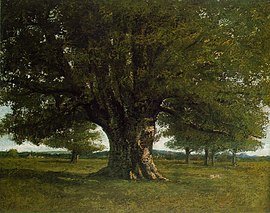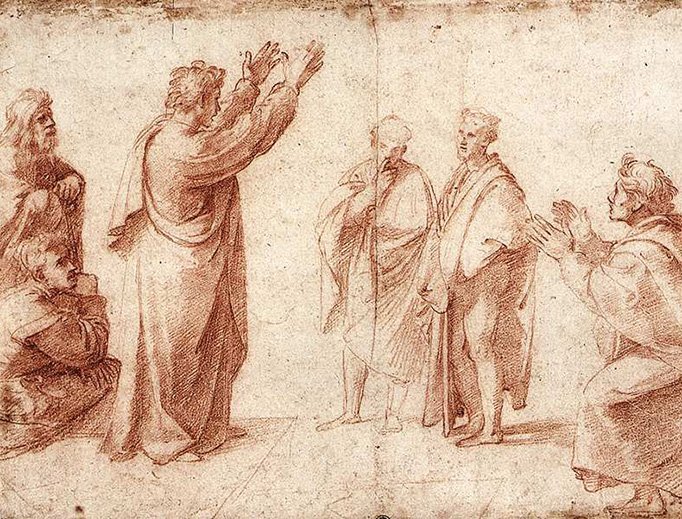The Genealogies of Modernity Journal
Inevitable Time in Romeo and Juliet
Time collapses on itself as Romeo’s lingering warmth betrays the truth of his death. He lived only moments ago. And now, Juliet is only moments away from ending her own time in this world.
Krystal Marsh on the warmth of lips
Poetry as Finding Through a Falling Away
What’s different about this idea, from either Claudel or Maritain, is that poetry does not call into being through naming: it finds.
Tom Break on Anna Key’s poetry and what art does
Jansenist Orientalism
Jansenist Orientalism, a sub-species of ‘Catholic Orientalism,’ matters as a French tributary to religious modernity as such—the overlooked contribution of a prominent if persecuted minority.
Richard Yoder on Orientalism in early modernity
Waiting on Value
The possibility of an event, of perceiving a thing in the difficulty of what it is to be, of a momentary vision with an other-worldly value, is necessarily predicated on a certain degree of silence.
Tom Break on patience and contemplation
Comedy and Conversion in Marcel Proust
Something happened between Proust's early efforts and his mature masterpiece, a paradigm shift that made the author capable of transferring his legendary gifts as a comic dinner-table raconteur 'onto the page.'
Trevor Merrill on Proust’s conversion
The Value in a Foreign Song
Something, outside of human reason, outside of human meaning and of human feeling, has reached him. “The bird sings.” And the speaker hears it.
Tom Break on hearing goodness in being
Augustine, Violence, and the Novelty of Machiavelli
Machiavelli follows Augustine by demythologizing violence, stripping it of the gloss of legend and heroism. He departs from him by adding that it is necessary, excusable, and worthy of imitation.
Brian Harding on violence and political reality
Art and the Work of Holding onto Hope
Every aspect of our existence is shot through with value, and it is inconceivable to think outside of this value-replete framework. So, how do we fit in an unmade world, in a world devoid of value?
Tom Break on art, value, and a meaningless world
Spiritual Abuse and Orthodox Disavowal
Perhaps the task of history, so like that of the Gospel, is to disquiet the living with a persistent presence that rises from the dead.
Richard Yoder reflects on Jansenism and the Refusal of Sacraments controversy
Three Lessons in Beauty
Anyone who has sought to make or comprehend art has probably come across at least a few lessons on beauty—insights that, it seems, can never be exhausted.
Trevor Merrill on lodestars of aesthetic judgement
Demystifying Soup Kitchen Relief during WWI
Her conviction to “give a helping hand” wherever it will be received was a moving incarnation of her ethical bent—one that remains as relevant today as it was in the wake of modernity’s worst set of horrors to date.
Casie Dodd on soup kitchens and the Great War
Popes, Unicorns, and Other Convenient Narratives
By demolishing the conflict thesis, the authors have reminded us that if we hope to make true progress, it will require disabusing ourselves of convenient narratives and embracing collaboration between faith and reason.
Zachary Stoltzfus reviews Of Popes and Unicorns
Deferring the End
Religion, and the apocalyptic motifs of the Christian Gospels, is that which alone can send us back into the world with a renewed strength for political engagement and activism.
Tim Howles on the eschatological roots of political renewal
Holding Open the Present
When the concept of the katechon is handled by contemporary theorists, it takes on a disappointingly conservative hue. . . . There seems to be little room for political activisms that might challenge the status quo.
Tim Howles on the eschaton and political theology
Art and the Restoration of the Value
If the loss of value is the affliction of our time, and if the recovery of value is going to be this serious and this painful, we will need to dig deep into the heart of the artistic enterprise to find the thing that has gone missing.
Tom Break on Simone Weil and the loss of value
Fight for Your Long Loud Laughs
So read this book. Support an adjunct. Get ready to laugh. Get ready to scratch your head at points and wonder, “Why did I listen to that dude online who told me to read this book?”
Jeffrey Wald reviews Alex Kudera’s For Your Long Day and finds reasons for laughter
Setting Sail for Truth
What ‘The Steerage’ pictures are the complexities that the myth of American immigration ignores. The truth is, it has never been a one-way trip to the promised land.
Arthur Aghajanian reflects on an Alfred Stieglitz photograph
A Genealogy of Death
The happy skeletons smile, as if to say, “I am alive, I am well, and death is not the end.” For Jorge Portilla, like Socrates before him, a good and meaningful life requires the endorsement of life after death.
Brian Harding on philosophies of death from Greece to Mexico























